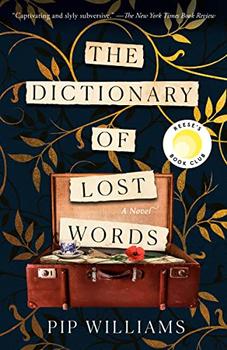Book Club Discussion Questions
In a book club? Subscribe to our Book Club Newsletter!
For supplemental discussion material see our Beyond the Book article, Reading About Dictionaries and Lost Words and our BookBrowse Review of The Dictionary of Lost Words.
Please be aware that this discussion guide will contain spoilers!
- What does The Dictionary of Lost Words tell us
about power?
- How do you think not having a mother influenced
the trajectory of Esme's life and her character?
- While this book is based on the true events
surrounding the publication of the first Oxford
English Dictionary, Esme herself is a fictional
character. Why do you think Williams chose to have
Esme grow up on the precise timeline she did?
- Is the ending of the book just? Do the characters
get what they deserve?
- Do you think this is a hopeful story? Consider
arguments for and against.
- Consider Esme and Lizzie's relationship. In what
ways are the women similar? How are they
different? Consider the extent to which nature/
nurture shapes their expectations and behaviors.
- Pip Williams is a celebrated author because
of her ability to establish a compelling sense of
time and place. How do the changing settings
influence the tone of the narrative?
- Why do you think Esperanto comes to play
such an important role in Esme's life, given she
grew up with a love of the English language?
- The Dictionary of Lost Words explores linguistic
inequality —the idea that not all words are equal.
To what extent do you think this phenomenon
exists in modern English? Consider the word like
and its place in modern speech. Who uses it? How
is it used? How has its use changed?
- Can the evolution of language ever be a bad thing?
- Williams depicts the lexicographers at the
Scriptorium as the gatekeepers to the English
language. Should the English language have
gatekeepers? Should the dictionaries we use today
help us to define our language, or should they
reflect it back at us?
Unless otherwise stated, this discussion guide is reprinted with the permission of Ballantine Books.
Any page references refer to a USA edition of the book, usually the trade paperback version, and may vary in other editions.
